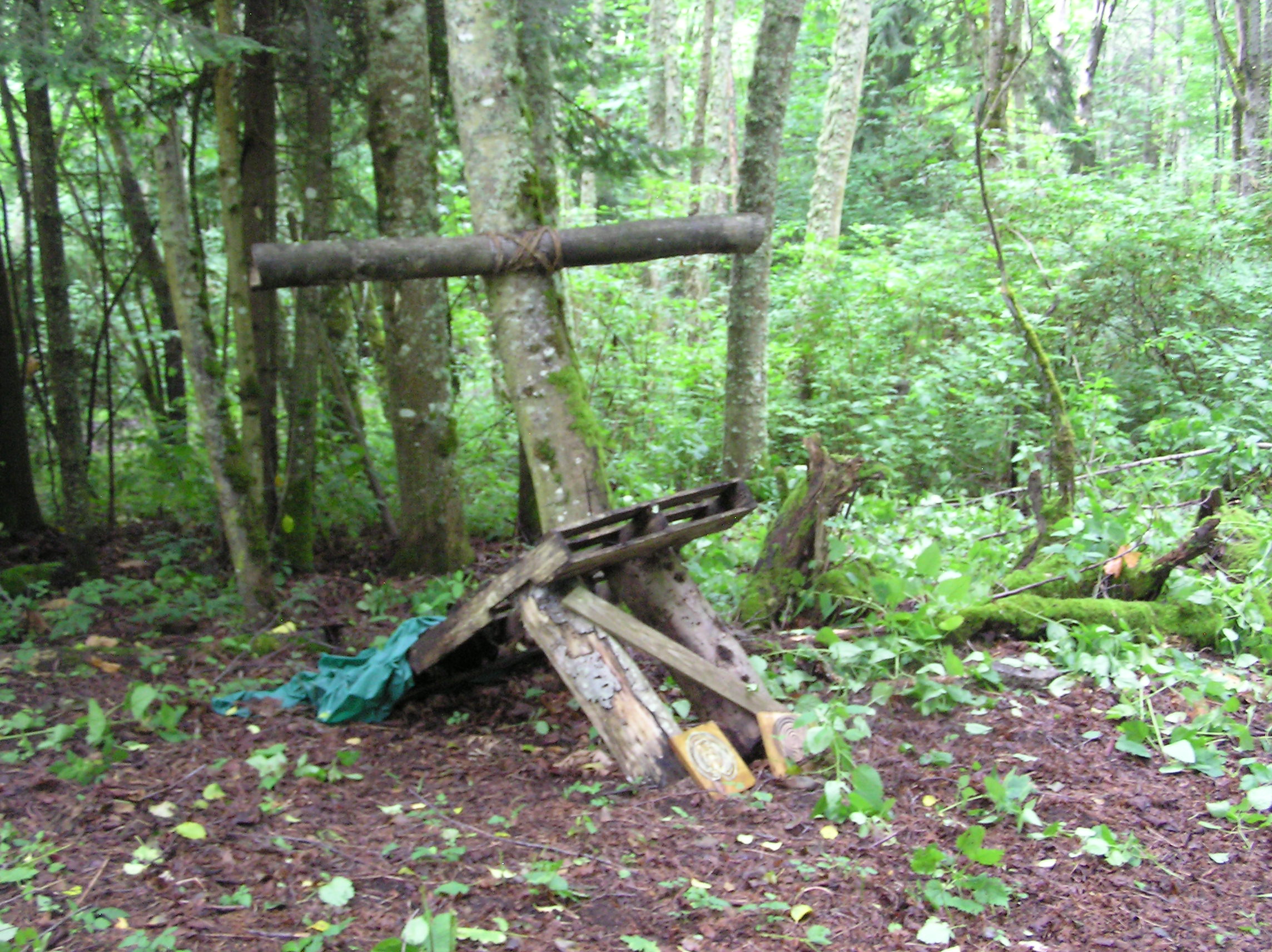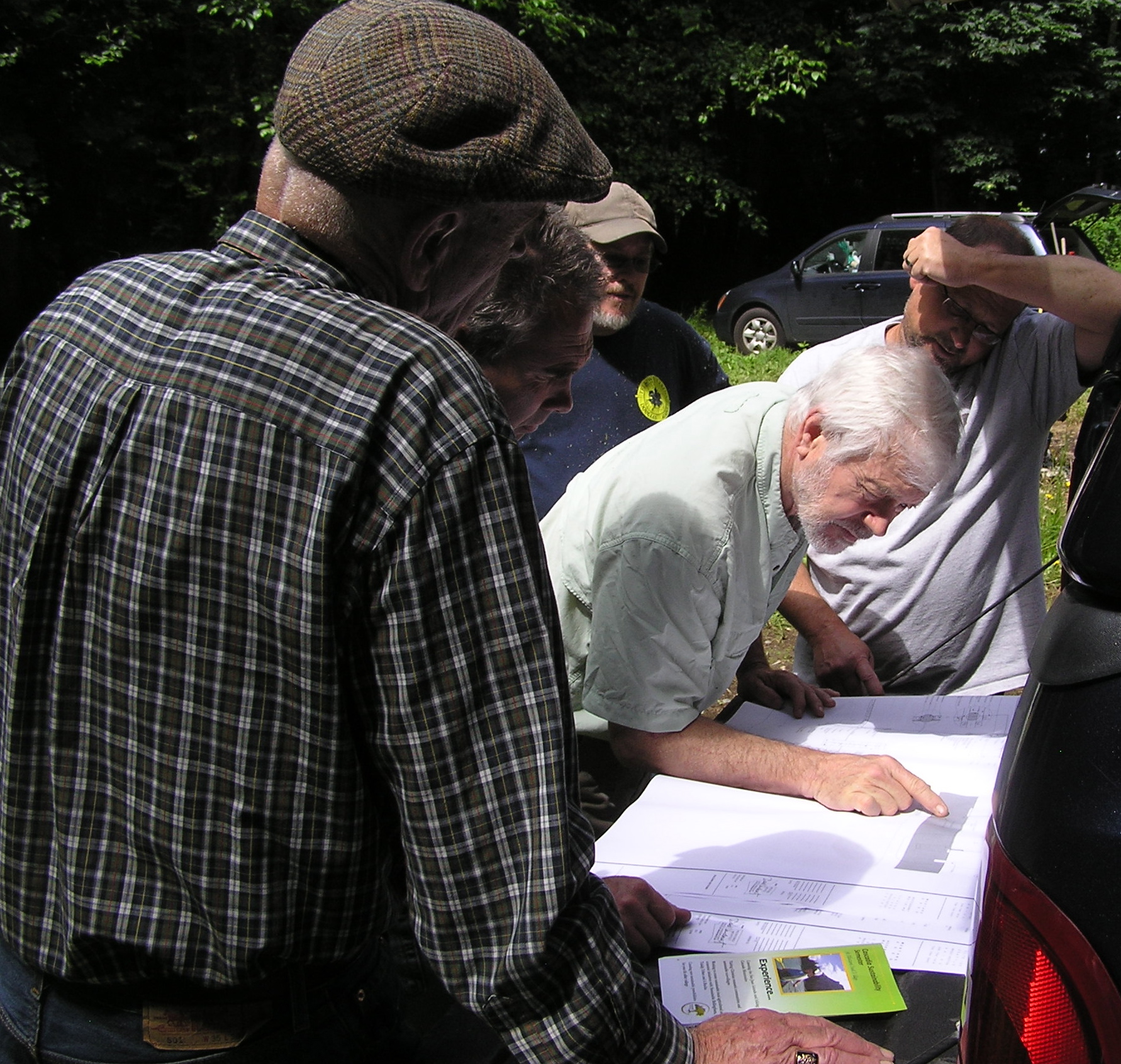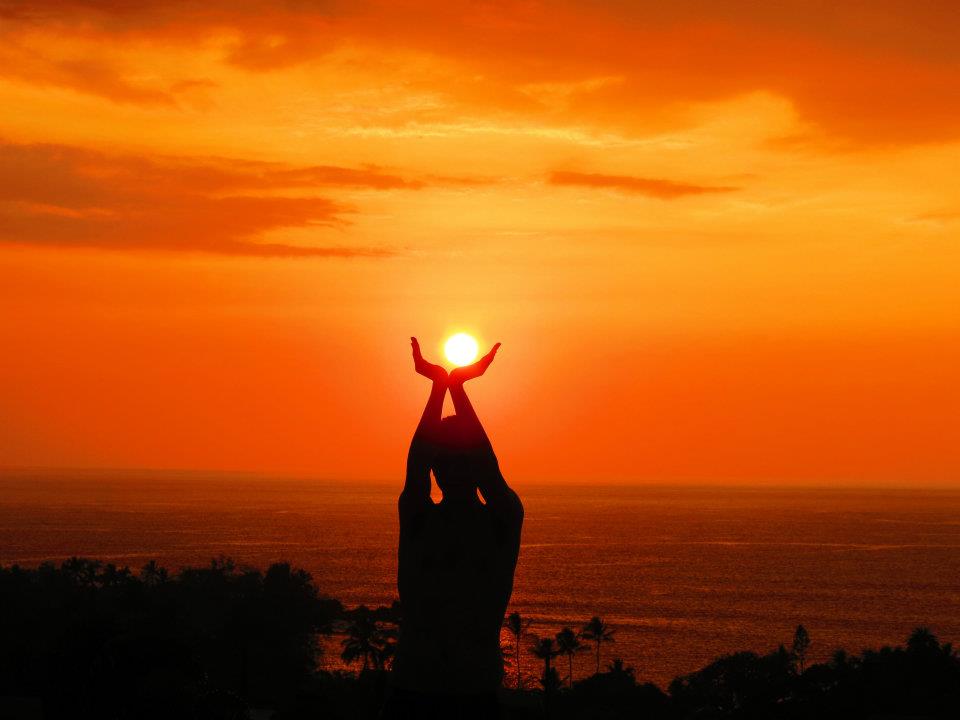Yesterday we went up to Camano Island to the site of the Mustard Seed Village. We staked out the site for the first building, met with contractors and cleared prayer trails from the upcoming Celtic retreat. It was in many ways a momentous visit. But in the midst I started to feel discouraged. The dirt bike riders have been back again, dumping rubbish, destroying our altar and ramming into and damaging the porta potty.
As I watched the beautiful butterfly above drinking from the blackberry flowers I realized how easily I look at the down side of life and miss the unexpected blessings of God. Our theme for this year’s retreat is thankfulness and gratitude and I realize that this is the place in which I need to be living. As I looked around me I saw how much we have to be grateful for. The beauty of this land always takes my breath away and I love to walk the trails just drinking in the wonder of God’s love poured out in creation. Our team of work party volunteers, headed by Doug Woods who has helped set up retreats over the last 10 years is another amazing blessing. Even the dirt bikers have helped. Because they have been driving up the trails we had a lot less clearing to do.
Watching as Dennis Todd, our architect David Vandervort and other potential workers discussed the plans for the building and then staked out its exact positioning was probably the greatest blessing of all. Tom and I have waited 20 years to see this happen, and to think I could have missed the wonder of the moment if I had kept my eyes on the rubbish and not on the blessings.

I am currently rereading E Stanely Jones‘ The Way. It is one of my favourite devotionals and I find myself coming back to it time and time again. This week I am working through a section where Jones talks about Jesus as being greater than the Bible, greater than the Ten Commandments, greater than the Creeds, and even greater than faith itself. It is a challenging and thought provoking series of devotionals.
Jesus is greater than the Bible, there is only one mediator, ( 1 Tim 2:5) and one way to God. All scripture, all creeds, all revelation must be viewed and judged through the filter of Jesus Christ – his life, death and resurrection. Eternal life is not in the pages of the Bible, it is in Christ who is uncovered through the scriptrues. The Word is not made printer’s ink, says Jones, The Word was made flesh, not a page buta person.
It is true that we would know little about Christ if it were not for the Bible. The Old Testament is the period of preparation for Christ, the New Testament is the revelation of Christ. We need to remember however that the New Testament is the report of various people’s impressions of Jesus, it is not Jesus himself. Yes it is divinely inspired and it has caught the essential meaning of who Christ is but as Jones says: we always have the feeling that they were trying to tell the untellable and express the inexpressible.
All of life is an ongoing revelation of Christ. We see him revealed in the face of friend and stranger. We see his presence in God’s wonderful creation. We see his miracles in our daily provision, in our healing from illnesses and more than anything in loving acts towards one another. He existed before the Bible was written. His presence fills all things, and holds all creation together (Colossians 1:15-20). It is good for us to remember this and give thanks.
Living Christ I give you thanks for what you reveal,
Something fresh each morning, something new each evening.
You are a constant surprise to me,
I hold my breath as new things unfold in every moment,
My soul tingles with expectancy and I thank you.
I would love to know your thoughts on this.
I have just made 2 hunza pies. This is a great ways to use greens from the garden. I just wish that I had more tomatoes & squash to go in the quinoa. Here is the Hunza pie recipe. This is great hot or cold.
Hunza Pie
A great vegetarian dish for a picnic or camping trip. the vegetable mix can be adapted depending on what vegetables you have available and what you like.
INGREDIENTS:
– 2 cups whole wheat flour
– 1 cup wheatgerm
1 cup golden flax meal
– 6 ounces margarine or butter
– 1/2 cup milk or water (I sometimes use whey left over from making yoghurt)
– 1 teaspoon vegetable salt
– 25 stalks Swiss Chard or other garden greens ,leaves coarsely chopped
– 2 1/2 lb potatoes
– 1 1/4 lb cottage cheese
– 1 teaspoon mixed herbs (I like Italian herb mix)
– 1 teaspoon salt
– 1 large onion, chopped
– 1 teaspoon dried basil, or 1/4 cup fresh chopped
– 2 cloves garlic, minced
– 1 cup mushrooms, diced
– 1 cup squash (e.g. zucchini), chopped or 1 cup broccoli
METHOD:
1. Pastry:
2. Sift flour and salt into bowl. add husks in sifter to flour fold in wheatgerm and flax meal. Rub in margarine until mixture resembles coarse breadcrumbs. Mix with enough water to make a stiff dough. Knead lightly. Cut pastry into 4 pieces. Cover and place in refrigerator for 20 minutes. Roll out 1/4 of pastry on floured surface and place in base and up sides of a 9 inch pie dish. Do same with second pastry section. Spoon over cold vegetable mixture. Brush edge of pastry with water. Roll out remaining pastry in 2 pieces and place over pies. Trim edge with a sharp knife. Make slits in top. Bake in a hot oven (400) for 15 minutes then reduce heat to 375 and cook further 15 – 20 minutes until golden brown.
3. Filling:
4. Peel potatoes and cut into cubes. Cook in salted water until tender. Drain.
5. Cook onions in a medium skillet with 1 tablespoon oil until brown. Add chopped mushrooms and squash. Cook a further 5 minutes. Add chard, garlic and herbs. Cook a further 5 minutes. Add cottage cheese and salt. Allow to cool.
SERVINGS: 12 from each pie
We love to eat it with hot sauce together with a tomato, basil, squash and mozzarella salad or with a quinoa salad.
This week I have been working on a chapter for my book Return to Our Senses about use of social media and prayer. I have thought a lot about how we can integrate these technologies into our prayers without becoming distracted, or even obsessed with the media we use. Most of my prayers reflect my recognition that in the midst of our use of these tools we need to keep Jesus always in our sight.
Jesus you are the beginning and the end, the centre and circumference,
You are the word of God, the language of eternity,
Help me this day to begin every thought, every secret longing, every act and project with you,
Help me to keep you always in my sight.
——————————
God you are like a tree that is always green,
All my fruit comes from you.
You heal my faithlessness,
You care for me and answer my prayers,
Your love knows no bounds,
Your salvation is eternal.
——————————-
Lord Jesus Christ may your truth burn bright within us,
May your ways ignite our hearts.
May we walk with confidence and passion,
With your light always before us.
——————————–
Lord Jesus Christ may we keep you always in our sight,
Standing up for justice in the ordinary and everyday,
Being present to the places to which you call us,
Creating a fabric of care in our neighbourhoods.
May we look and see and trust,
The small is breaking through again,
God is planting mustard seeds of the kingdom.
———————————-
Lord God almighty, you are God there is no other,
You are the one in whom I place my trust,
You are the one whose promises stand firm,
You are the one who gives the gracious gift of life.
————————————

A couple of months ago Travis Reed from Work of the People interviewed me for a series of videos associated with my book Return to Our Senses: Reimagining How We Pray. I talked about this in a previous post: Creating Sacred Spaces: Do We Really Churches
Here is a sneak preview of the first video. You can watch it here

St Francis of Assisi via Dating God
I was sent this prayer by St Francis of Assisi a few days ago by Jamie Arpin Ricci. It was posted at Dating God: Franciscan Spirituality for 21st Century. It seemed a very appropriate prayer for me this morning as I have been meditating on what means to keep Jesus always in my sight and to enter into prayer with all my heart and soul and mind.
A couple of days ago in my post Can We see the Face of God and Live, I mentioned that I have been reading Lord, Teach Us To Pray by 19th century Scottish pastor Alexander Whyte. He reminded me that “prayer is the very highest energy of which the human heart is capable.; prayer, that is, with the total concentration of all our faculties. He goes on to say: Believe me, to pray with all your heart, and strength, that is the last, the greatest, achievement of the Christian’s warfare on this earth.
Therefore,
let us desire nothing else,
let us want nothing else,
let nothing else please us and cause us delight
except our Creator, Redeemer and Savior,
the only true God,
Who is the fullness of good,
all good, every good, the true and supreme good,
Who alone is good,
merciful, gentle, delightful, and sweet,
Who alone is holy,
just, true, holy, and upright,
Who alone is kind, innocent, clean,
from Whom, through Whom and in Whom
is all pardon, all grace, all glory
of all penitents and just ones,
of all the blessed rejoicing together in heaven.
Amen.
If you are wanting a challenging approach to prayer you may like to download a pdf of Whyte’s book here

MSA intern Chris Holcomb
MSA intern Chris Holcomb is starting a series of posts at the MSA blog on experiments in simplicity.
One of the questions that I’ve been grappling with over the last several years is this: what do people need? No, I’m not trying to think of a product to sell, or an innovation to change the world; I’m thinking in much more basic terms than those. What does a person need to survive, and what do they need to live a happy, fulfilling life?
Check out the first post here
As an Amazon Associate, I receive a small amount for purchases made through appropriate links.
Thank you for supporting Godspace in this way.
When referencing or quoting Godspace Light, please be sure to include the Author (Christine Sine unless otherwise noted), the Title of the article or resource, the Source link where appropriate, and ©Godspacelight.com. Thank you!




